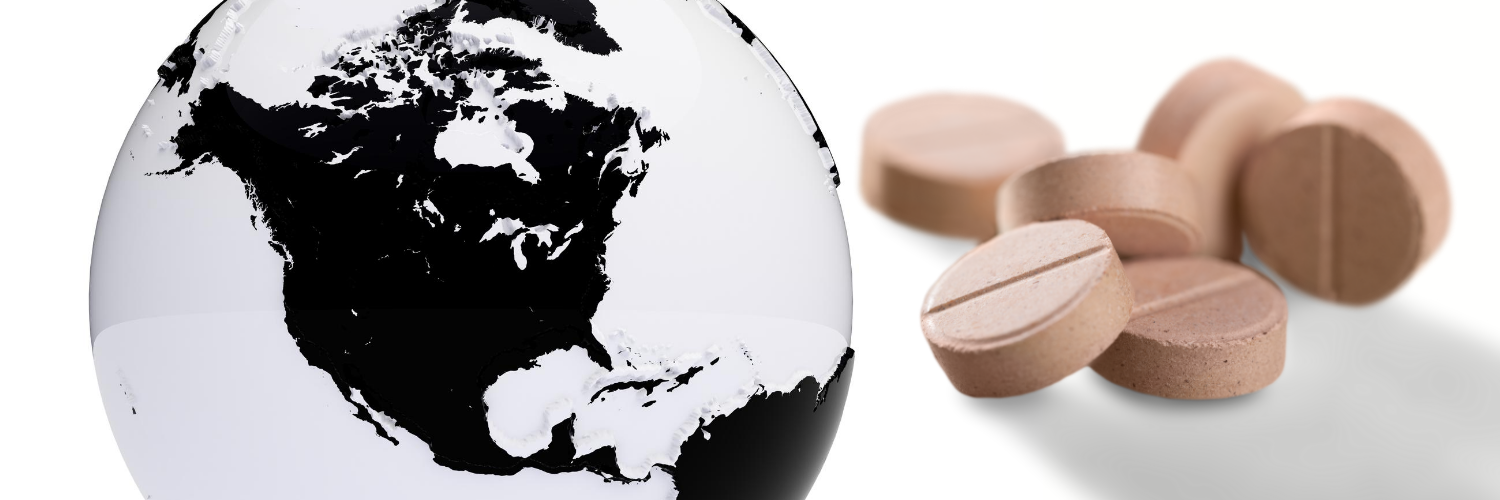State Drug Importation Laws. What’s the deal?

Elected leaders of state governments recognize that prescription drug prices are out-of-control expensive in America. After all, the same and most expensive prescription drugs sold here cost on average 75% lower in other high-income countries. Voters are rightfully fuming. Enter: State drug importation proposed bills and laws. Have you heard about them? How do they affect you, the American consumer fed up with high drug prices? Why is this so important?
The prices are much lower in Canada and federal law, despite what people think, actually allows us to import drugs from there. So, when thinking about this, consider Robbie Schneider, Adam Sandler’s loyal sidekick in many films saying, “You can do it!”
Or can you?
You might be thinking — especially if you live in a border state — “Wait a minute! People already buy medications from Canada or Mexico, and they also order them from online pharmacies.” You’d be right! One survey by the Kaiser Family Foundation in 2016 shows that about 20 million Americans had imported prescriptions due to lower drug prices outside the U.S. Just last year, a paper published in the Journal of the American Medical Association estimated that 2.3 million people in the U.S. buy medication outside the country every year.
The catch here is that under most circumstances importing prescription drugs, even the exact same drugs available at your local pharmacy, is technically prohibited under federal law. “Wait a second! You just said above that federal law “allows us to import drugs. Make up your mind already.”
Both are true.
Now is a good time to explain the difference between personal and wholesale drug importation.
Personal Prescription Drug Importation
Personal drug importation occurs when an individual, such as you or me, imports a prescription drug for their own use: not resale. If your dad can’t afford his blood pressure meds, he may decide to order online from Canada, Turkey, or the UK, for example.
Take the brand-name drug Jardiance (empagliflozin), which treats type 2 diabetes. Jardiance, the one people buy from Main Street U.S.A. Pharmacy, is made in Italy by German drug company Boehringer Ingelheim Pharmaceuticals, Inc.
People in Canada also take Jardiance. Boehringer ships it to wholesale pharmacies in Canada, which distribute it to retail pharmacies in Canada. American Joe Schmo (a theoretical person) has a prescription for Jardiance. Joe is 63, lost his job, and does not have health insurance. The price for a three-month supply in the U.S. could run Joe $2,000. He can’t afford it. Joe either travels to Canada or finds an online pharmacy from which he can buy it for $325. Same product from Italy. He orders it online, submits his prescription, and imports it from Canada by mail.
Federal law simultaneously prohibits and permits this. No one is prosecuted for it.
How can this be? Federal law mandates that all drugs sold in the U.S. are FDA-approved, a designation that includes the labeling of that drug in accordance with FDA requirements. Jardiance sold in Canada may be the FDA-approved drug in all respects except for the label. The law states:
...no drug... may be imported into the United States for commercial use if such drug is manufactured outside the United States, unless the manufacturer has authorized the drug to be marketed in the United States and has caused the drug to be labeled to be marketed in the United States."
Emphasis added.
Commercial use means for re-sale, as in wholesale importation. Congress explicitly banned imports without the drug company’s OK for wholesale distribution, but not for personal import. Does that make the personally imported Jardiance expressly legal? Nope. Due to its labeling and chain of custody outside the FDA’s watch, the Jardiance from the Canadian pharmacy can be designated as misbranded and/or unapproved. Yet, unlike with wholesale importation, federal law ranges from forgiving to expressly permitting otherwise prohibited importation for personal use. Here are three examples:
- Federal law makes possible an exemption for misbranded FDA-approved drugs for individuals. [21 U.S. Code §353 (b) (2), CFR 201.100]
- Federal law states that our regulators should “permit” personal imports that do not represent an “unreasonable risk” to the individual. [21 U.S. Code §384 (J)(1).]
- FDA has a personal importation policy specific to unapproved drugs that individuals have relied on as their basis for importing.https://www.fda.gov/industry/import-basics/personal-importation.
Wholesale Drug Importation
Wholesale drug importation occurs when a person or business imports drugs with the intent to resell those drugs.
Scenario #1 – Drug Company-Approved Commercial Drug Importation. Entirely legal.
Wholesale drug importation is also referred to as commercial importation. Most of the drugs you buy at your local pharmacy are actually imported this way. Let’s stick with the example of brand-name drug Jardiance. To get here, the drug is shipped under the authorization of Boehringer from the factory in Italy to a wholesale pharmacy in the United States that distributes it to retail pharmacies in the United States.
Scenario #2 –Wholesale Drug Importation Not Authorized by Drug Company. Illegal.
In scenario 2, a person or company, without authorization from Boehringer, imports Jardiance from a Canadian wholesaler and resells it to a pharmacy in the United States. People are criminally prosecuted for this type of importation. If this were legal, U.S. wholesalers could purchase prescription drugs from Canadian wholesalers at lower prices than they now obtain from the drug companies, which would help lower drug prices in the United States. And, as you’ll see below, the law provides an opportunity.
Scenario #3 – Authorized Wholesale Drug Importation. Legal from Canada with strings attached.
Federal law allows for the importation of prescription drugs from Canada described in Scenario 2 above with important caveats. The main caveat is that the Secretary of Health and Human Services (HHS) must certify that drug importation from Canada poses no additional risk to the public health and will achieve substantial savings for the American consumer. The law is known as Section 804 of the Federal Food, Drug, and Cosmetic Act. This is the main focus of state governments in their legislative efforts on wholesale drug importation from Canada.
The HHS Secretary made this certification last year in the form of a new federal rule, based on Section 804. Section 804 identifies do’s and don’ts for drug importation from Canada without authorization from drug companies. The rule requires that states submit their drug importation program plans before actually importing. HHS must review those programs to make sure they meet the rule’s requirements.
States Cozying up to Prescription Drug Importation
The idea of Canadian drug importation is super popular, folks! Nineteen states have introduced legislation to allow for the wholesale importation of lower-cost drugs from Canada. None of the states that have passed laws allowing wholesale prescription drug importation are currently importing drugs under these laws. Four of the six states that have passed drug importation laws have submitted programs for HHS to review.
To date, HHS has neither approved nor rejected the submitted programs.
State Drug Importation Legislative Action |
|||
Introduced Legislation |
Passed Laws |
Submitted Rx Importation Programs to the HHS |
|
| Arizona | |||
| California | |||
| Colorado | |||
| Connecticut | |||
| Florida | |||
| Hawaii | |||
| Maine | |||
| Minnesota | |||
| New Hampshire | |||
| New Jersey | |||
| New Mexico | |||
| New York | |||
| North Dakota | |||
| Oklahoma | |||
| Rhode Island | |||
| Tennessee | |||
| Utah | |||
| Vermont | |||
| West Virginia | |||
Republicans and Democrats are united on prescription drug importation
Look at the votes on these importation bills. In Vermont’s legislature, only two people voted “No.” In New Mexico, the votes were all “Yes.” In Florida, Republican Ron DeSantis strenuously pushed the bill forward, as did Democratic Governor Jared Polis in Colorado. For those Americans tired of endless and often petty partisanship, this is the right issue to rally around with your Democrat or Republican friend across the street.
State Votes on Prescription Drug Importation |
||
| Senate | House | |
| Vermont | 29-0 | 141-2 |
| Florida | 27-13 | 93-22 |
| Maine | 35-0 | 138 yes, 3 nay, 9 absent and 1 excused |
| Colorado | 20-14 | 41-22 |
| New Mexico | 35-0 | 68-0 |
| New Hampshire | 24-0 | NA |
What do these state drug importation laws and program plans look like?
Described most simplistically, the plan is to allow states with the proper regulations in place to meet federal law to regulate the wholesale importation of prescription drugs from Canada. The state drug importation laws and plans are for the most part based on model legislation publicized by the National Academy for State Health Policy (NASHP). The main components of the legislation and proposals submitted to HHS are as follows:
- States will designate an agency to oversee the importation program, often the state department of health.
- States will register a U.S., state-licensed wholesale pharmacy as one permitted to import prescription drugs from Canada.
- States will register a licensed Canadian wholesaler, permitting it to export prescription drugs to the state-registered wholesaler.
- States can only allow imports of prescription drugs that are not precluded under Section 804. The following drugs cannot be imported under Section 804:
- Biologics
- Controlled substances
- An infused drug
- An intravenously injected drug
- An inhaled drug
- A parenteral drug, subject to the Secretary’s determination on public health risk.
- States will identify for HHS the drugs it seeks to import and the savings it can achieve on those drugs.
- Imports are only permitted from registered wholesale pharmacies in Canada that received the drugs for export directly from the manufacturer of those drugs.
- Each batch of imported drugs must be tested for safety, described as “authenticity and degradation.”
- Imported drugs must be re-labeled to meet U.S. drug labelling requirements.
- Imported drugs cannot be sold outside the state.
Other provisions of the model legislation include taking steps to prevent anticompetitive behavior by affected drug companies; reporting and monitoring of the licensed entities involved in sale and distribution; and integrating the drug imports into the U.S. system for tracking and tracing of medications to protect the drug supply.
There are some differences among state legislation, laws, and proposals to allow drug importation from Canada. While all of them must meet the above parameters, some attempt to go beyond them in important respects that could improve the degree to which importation can be a game changer to lower drug prices.
Vermont
Vermont was the first state to pass a state wholesale drug importation law, signed by the governor on May 16, 2018.
The basics of the program called for in the law are those listed above. It designates the Vermont Agency for Human Services as responsible for the program. Vermont’s law calls for engaging with “health insurance plans, employers, pharmacies, health care providers, and consumers;” and developing “a registration process for health insurance plans, pharmacies, and prescription drug-administering health care providers who are willing to participate in the program.”
Vermont finalized a concept paper (not a final program submission), which it submitted to HHS for review. According to NASHP, the programs developed by Vermont, Maine, and Colorado are very similar.
Florida
Florida passed its drug importation law on June 11th, 2019. The state formally submitted its program for review on November 23, 2020.
According to NASHP, Florida’s law differs from Vermont’s in that the former’s program would only benefit payors insured by a public plan (i.e., state employees and the incarcerated) and the latter could benefit the commercial market as well as public insurers. However, reading the actual law, commercial payors and individual consumers could potentially benefit.
The law seeks to implement two programs: one is called “Canadian Prescription Drug Importation Program” and the other “International Prescription Drug Importation Program.” The first program is very similar to those called for by other states. The second program is very different: it calls for the creation of a new license, a “permit” for “international export pharmacies.” This program could be of benefit to the commercially insured marketplace. It sets up a plethora of regulations for the safe exporting of qualified prescription drugs from countries “with which the United States has a current mutual 402 recognition agreement, cooperation agreement, memorandum of 403 understanding, or other federal mechanism recognizing the 404 country's adherence to current good manufacturing practices for 405 pharmaceutical products.” That means allowing importation from any country that has stringent pharmaceutical safety standards, ones recognized by the United States. Federal law probably does not accommodate a wholesale drug importation program this expansive, but it should. And this part of Florida’s law, at the very least, pushes the envelope in the right direction.
California’s personal drug importation twist
Unlike other state drug importation laws I’ve read, California, in addition to calling for wholesale drug importation from Canada, seeks to expressly permit personal drug importation, in accordance with Section 804 (J) mentioned above:
“This bill would authorize an individual to import a prescription drug only for use by that individual or a member of that individual’s immediate family from a foreign pharmacy if specified requirements are met. The bill would prohibit an individual from, among other things, importing a prescription drug for resale or a controlled substance.”
This personal importation already occurs, as discussed above, and the FDA was instructed to allow it by Congress through “enforcement discretion” as long as the import is not an “unreasonable risk” to the consumer.
Related: State Drug Importation Bills Just Got More Personal in California
Big Pharma sued HHS to stop importation
The pharma industry association called Pharmaceutical Researchers and Manufacturers of America, the pharma-funded Partnership for Safe Medicines, and the Council for Affordable Healthcare Coverage, are not happy about HHS allowing importation from Canada to bring down drug prices. They have sued HHS in federal court to stop it.
The gist of their complaint is that the requirements of the law, Section 804 have not been met. Specifically, to implement Section 804, the final rule officially certified that drug importation from Canada does not pose any additional risk to the public health and will achieve substantial savings for the Americans consumer. Big Pharma’s lawsuit claims that the certification was wrong because those requirements have not been met.
It’s up to the Biden Administration to defend the rule in court or not.
Conclusion
- State drug importation legislation attempts to open the door to price competition from Canada and other countries based on current federal law.
- About 20 states have introduced such legislation; six have passed laws; and five have submitted programs to HHS for review. No actual importing under these laws has begun.
- Individual consumers are unaffected at this time.
- The momentum for these laws occurred under the Trump administration. While Biden supported drug importation during his campaign, it’s not certain what his actions will be on the new rule, state laws and personal drug importation.
We’ll be watching closely.




